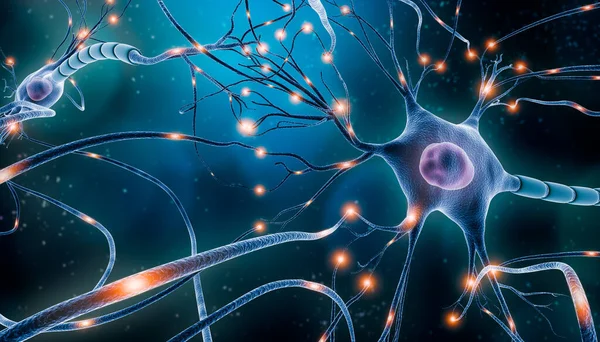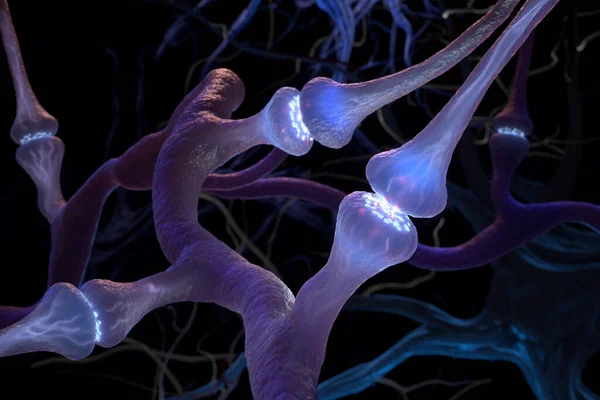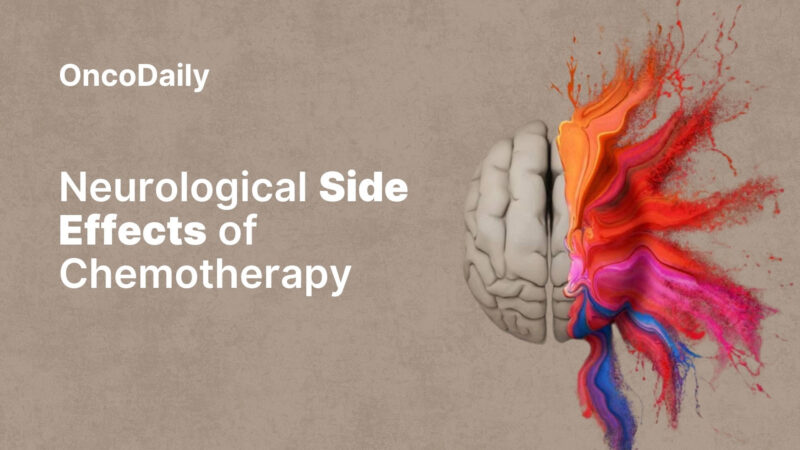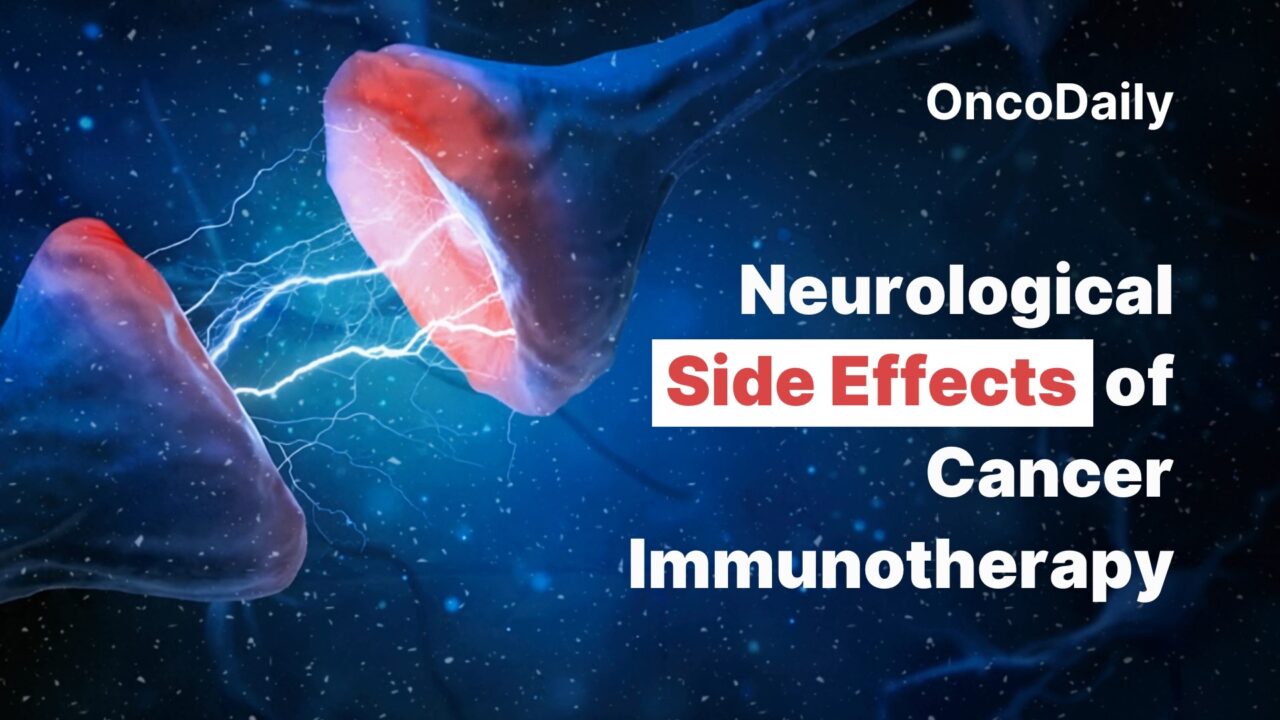Cancer immunotherapy is one of the most innovative advances in oncology, harnessing the body’s immune system to better detect and fight cancer cells. In contrast to traditional therapies like chemotherapy and radiation, which directly target tumors but also damage healthy organs, immunotherapy enhances the immune system’s ability to recognize and eliminate cancer.

Photo: Depositphotos
Despite its promise, immunotherapy comes with its risks. Because these treatments amplify or redirect the immune response, they can sometimes lead to unintended immune attacks on normal tissues, resulting in side effects known as immune-related adverse events (irAEs). Among these are neurological side effects affecting the brain, spinal cord, and peripheral nerves, which are particularly concerning due to their complexity, potential severity, and impact on patients’ quality of life.
The objective of this article is to provide a comprehensive overview of the neurological side effects associated with cancer immunotherapy, exploring their underlying mechanisms, clinical manifestations, and current approaches to diagnosis and treatment. By increasing awareness of these challenges, clinicians and patients can better navigate the evolving landscape of immunotherapy while optimizing outcomes.
There are several forms of immunotherapy that are currently employed for cancer treatment. Each type works in a different way:
- Immune checkpoint inhibitors: Cancer cells exploit PD-1, PD-L1, and CTLA-4 to avoid immune detection. Inhibitors block these checkpoints to restore T cell activity.
- CAR-T Cell Therapy: Patient-derived T cells are engineered to express synthetic receptors for tumor antigens, enabling direct tumor cell targeting.
- Cytokine therapies: Cytokines like IL-2 and interferons enhance immune cell proliferation and function, though often with systemic side effects.
- Cancer vaccines: These stimulate an immune response against specific tumor-associated antigens, aiming to train the immune system to recognize and eliminate cancer cells.
- Other modalities: Include oncolytic viruses and monoclonal antibodies targeting tumor-specific proteins.
Immunotherapy enhances T lymphocyte activity to detect and destroy cancer cells. Mechanisms include:
- Reactivation of T cells through blocking inhibitory pathways
- Redirecting Immune Cells
- Enhancing Immune Cell Proliferation and Function
- Stimulating Immune Memory
- Neurological adverse events (AEs) related to cancer immunotherapy are relatively uncommon but clinically significant due to their potential severity and impact on patient quality of life..
For immune checkpoint inhibitors (ICIs), which are the most widely used immunotherapy class, neurological side effects occur in approximately 0.1% to 6% of patients. For instance, serious neurological AEs have been observed in about 6.1% of patients receiving combined nivolumab and ipilimumab therapy and around 2.7% with nivolumab monotherapy alone..
In studies involving thousands of patients who were treated with PD-1/PD-L1 inhibitors, about 41% had neurological symptoms of some kind, and about 4% had significant neurological complications. Common neurological symptoms include headache, dizziness, and peripheral sensory neuropathy, while more serious events like seizures and cerebrovascular accidents are rarer.
Neurological toxicity is a more prevalent complication of CAR T-cell therapy, with rates as high as 48% reported in studies. This complication is frequently characterized by immune effector cell-associated neurotoxicity syndrome (ICANS) Neurological irAEs are also more frequent in cancers heavily treated with immunotherapy, such as melanoma, NSCLC, and RCC.
What Type of Neurological Complications Might Arise?
CNS adverse events :
Encephalitis is an immune-related inflammation of the brain that can cause symptoms like confusion, cognitive impairment, seizures, psychiatric symptoms, and problems with movement. Without fast treatment, mortality rates can be very high. Meningitis is an infection of the membranes that protect the brain and spinal cord. It causes headaches, fever, stiff neck, and altered consciousness. Seizures can manifest due to underlying encephalitis or other neuroinflammatory processes triggered by immunotherapy. Cognitive changes including attention deficits, memory impairment, and altered mental status; often part of broader syndromes such as immune effector cell-associated neurotoxicity syndrome (ICANS), it can also lead to encephalopathy, aphasia, tremor, and, in severe cases, coma.

Synapse and Neuron cells sending electrical chemical signals . 3D illustration — Photo: Depositphotos
Peripheral Nervous System (PNS) Adverse Events
Peripheral neuropathies present with symptoms such as numbness, tingling, burning sensations, and weakness, often occurring symmetrically in the limbs. These neuropathies may be sensory, motor, or mixed in nature. Guillain–Barré-like syndromes, although rare, are serious conditions characterized by acute autoimmune demyelinating polyradiculoneuropathy, leading to rapidly progressive muscle weakness and areflexia.
Muscle And Neuromuscular Junction Disorders
Myasthenia gravis-like syndromes have been associated with immune checkpoint inhibitor therapy, presenting with fluctuating muscle weakness that often affects the ocular, bulbar, or limb muscles. This weakness results from impaired nerve–muscle transmission. Myositis is another immune-mediated complication characterized by inflammation of the muscles, leading to pain and weakness, commonly involving the limb-girdle or neck muscles, and in severe cases, progressing to rhabdomyolysis.
Overlap Syndromes : The Presence Of One Or More Of The Mentioned Disorders
Its very important to pay attention to the nature of the symptoms as they may develop gradually or acutely and mimic other disorders.Common early signs include:
- New or worsening headaches
- Confusion, memory problems, or difficulty concentrating
- Muscle weakness or unusual fatigue
- Numbness, tingling, or burning sensations in the limbs
- Vision changes or double vision
- Difficulty speaking, swallowing, or breathing
- Sudden onset of seizures or tremors.
One of the most common challenges in recognizing neurological toxicities from immunotherapy is that symptoms often overlap with other neurological disorders
For example, cognitive changes or encephalopathy may mimic infections, metabolic disturbances, or brain metastases. Peripheral neuropathies can present similarly to diabetic neuropathy or chemotherapy-induced nerve damage, while muscle weakness in myositis or myasthenia gravis may resemble other neuromuscular diseases.
In certain cases, neurological symptoms may be wrongly linked to the cancer getting worse or to other health problems, which can delay identification and treatment. So, it is very important to keep a high level of suspicion for immune-related neurological side effects in patients who are getting immunotherapy. But why do neurological side effects from immunotherapy happen ? they are mostly caused by the immune system not working right. This can happen when the immune system tries to attack cancer cells but ends up attacking parts of the nervous system instead. Some of these mechanisms are
Immune Dysregulation and Autoimmunity
Immune checkpoint inhibitors (ICIs) including anti-PD-1, anti-PD-L1, and anti-CTLA-4 antibodies boost T cell activation by blocking pathways that stop them from working. This is like taking the “brakes” off of immune responses.
While this enhances the immune system’s ability to fight tumors, it could also cause autoreactive T cells to become activated or autoantibodies to be made that attack brain tissue, which would cause autoimmune inflammation. This can show up as different neurological syndromes, such as encephalitis, peripheral neuropathies, or neuromuscular junction disorders
Molecular Mimicry and Cross-Reactivity
This happens when antigens that are shared between tumor cells and parts of the nervous system cause immune responses that react to both.
For instance, epitopes that are found in both melanoma cells and myelin or gangliosides in peripheral nerves may cause neuropathies that cause the loss of myelin. In the same way, autoimmune encephalitis caused by ICIs may involve the immune system recognizing NMDA receptor subunits that are also mutated in some malignancies.
Cytokine-Mediated Neuroinflammation
CAR T-cell therapy often causes cytokine release syndrome (CRS), which is a systemic inflammatory response marked by high levels of pro-inflammatory cytokines like interleukin-6 (IL-6), interferon-gamma (IFN-γ), tumor necrosis factor-alpha (TNF-α), and granulocyte-macrophage colony-stimulating factor (GM-CSF). This cytokine storm is a part of immune effector cell-associated neurotoxicity syndrome (ICANS) which is a neuroinflammatory disorder that causes the blood-brain barrier (BBB) to break down.
Blood-Brain Barrier Dysfunction and Immune Cell Infiltration
The BBB must stay intact for the CNS to stay healthy. Endothelial damage and inflammatory cytokines make the BBB less effective when it comes to neurotoxicity connected to immunotherapy. This lets harmful immune cells and mediators into the CNS parenchyma, which causes inflammation and damage to tissues. In affected patients, high levels of cerebrospinal fluid (CSF) protein and immune cells, such as CD4+ and CD8+ T lymphocytes, show that the BBB is leaking.
Excitotoxicity and Neuronal Injury
Injury Inflammatory cytokines can change neuronal excitability, potentially leading to seizures and other neurological symptoms. When microglia and macrophages are activated, they make excitatory chemicals like quinolinic acid and glutamate. These molecules act on NMDA receptors to cause excitotoxic damage to neurons. This is a feed-forward cycle in which inflammation keeps damaging neurons.
It can be hard to diagnose neurological side effects of cancer immunotherapy since there are so many different symptoms, they can seem like other neurological diseases, and you have to rule out other possible reasons including infection, cancer progression, or metabolic problems. A complete and organized diagnostic work-up is necessary for quick recognition and good management.:
- Clinical evaluation : A thorough neurological history and physical exam are the most important parts. Doctors should look at when symptoms started in relation to immunotherapy, how they got worse, and any other systemic indicators that might be present. A careful neurological exam can assist find the damaged area(s) of the nervous system.
- Magnetic resonance imaging (MRI) of the brain and/or spine is generally the initial imaging test used in neuroimaging. MRI can show abnormalities in blood vessels, inflammation, or loss of myelin.
- Laboratory and Cerebrospinal Fluid (CSF) Analysis : Lumbar puncture is an important test to look for inflammatory markers, immune cells, protein levels that are too high, or infectious organisms in the laboratory and cerebrospinal fluid (CSF). which in turn helps distinguish the difference between neurotoxicity caused by the immune system and infections or metastatic illness.
- Electrophysiological Studies Nerve conduction studies and electromyography (EMG) help doctors figure out if someone has peripheral neuropathies, neuromuscular junction disorders, or muscle illnesses. These tests assist in figuring out what kind of nerve or muscle damage there is and the extent of it
Why Do Neurological Immune-Related Adverse Effects Require a Multidisciplinary Approach?
Oncologists are very important for finding any neurotoxicities in patients using immunotherapy and setting up the first examination. They also decide whether to keep going with cancer treatments, take a break, or stop them altogether. Neurologists are experts in doing extensive neurological assessments, diagnosing neurological problems with particular tests, and treating neurological symptoms. Their opinion is very important for understanding the results and directing immunosuppressive treatments.
Depending on the situation, rheumatologists, infectious disease specialists, radiologists, and rehabilitation professionals may also be engaged. Early interdisciplinary evaluation enhances diagnostic accuracy and allows for quick, personalized therapies that optimize both neurological and oncological results. Patients getting immunotherapy should be closely monitored for early neurological symptoms throughout treatment, especially in the first 6-12 weeks after starting as many neurotoxic events happen during this period.
Routine neurologic assessments and patient education about reporting new or worsening neurological problems are essential.
Grading Severity
Neurological adverse events are typically graded based on severity using established criteria (e.g., Common Terminology Criteria for Adverse Events – CTCAE):
- Grade 1 (Mild): Minimal symptoms, no interference with daily activities
- Grade 2 (Moderate): Moderate symptoms, some interference with function
- Grade 3 (Severe): Severe symptoms, limiting self-care activities
- Grade 4 (Life-threatening): Urgent intervention required
- Grade 5: Death related to adverse event
Main Strategies for Treatment
Mild (Grade 1)- Immunotherapy can often be continued with close monitoring. Symptomatic treatment may be sufficient.
Moderate (Grade 2)-Temporary discontinuation of immunotherapy is advised. Initiate corticosteroid therapy, commonly prednisone or methylprednisolone (often at 0.5 to 1 mg/kg/day), and carefully monitor for improvement.
Severe (Grade 3/4)- Immunotherapy should be permanently discontinued. High-dose corticosteroids are necessary. If there is no improvement, additional immunosuppressive treatments such as intravenous immunoglobulin (IVIG), plasmapheresis, or other immunomodulatory agents (mycophenolate mofetil, rituximab) may be used. Most of the time, people need to be hospitalized for close supervision and support. Monitor and manage complications like respiratory failure (especially in myasthenia gravis or severe myositis), seizures, or autonomic dysfunction.
Immediate Evaluation and Treatment are Necessary If Patients Develop:
- Rapidly progressive muscle weakness or respiratory compromise
- Altered mental status , seizures , signs of encephalitis
- Severe neuropathy with motor impairment
- Neurological immune-related adverse events (irAEs) that happen during cancer immunotherapy might have quite different clinical courses and outcomes.
While many patients experience significant improvement or full recovery with appropriate treatment, a lot may suffer from persistent neurological deficits or serious complications. Research shows that about half of the people who have neurological problems get better, even those with severe presentations However, some manifestations, especially paraneoplastic-like syndromes and certain neuromuscular disorders, are associated with slower or incomplete recovery. Neurological outcomes are also worse when patients are older or have advanced cancer.
Deaths directly from neurotoxicity are uncommon but do happen, often linked to complications like cerebral edema, respiratory failure, or infection secondary to immunosuppressive therapy.
In some cohorts, neurological toxicity contributed to nearly one-third of deaths in patients with neurological irAEs so starting immunosuppressive medication, especially corticosteroids, right away greatly increases the chances of neurological recovery. For instances that don’t respond to other treatments, intravenous immunoglobulin (IVIG) or plasmapheresis are employed. Stopping immunotherapy early in severe cases facilitates neurological improvement but may raise concerns about cancer progression.
Because balancing ongoing cancer control and managing neurotoxicity is a clinical challenge Approximately half of patients experience cancer progression after discontinuation of immunotherapy triggered by neurotoxicity, yet some patients can be safely rechallenged while being closely monitored without neurological relapse. In survivors, subtle cognitive impairments, fatigue, depression, and anxiety have been reported, particularly following CAR T-cell therapy and severe neurotoxicity syndromes such as ICANS. Long-term follow-up studies are ongoing to better
Researchers are currently looking for new ways to address neurotoxic side effects and new biomarkers that can help them better predict, prevent, and treat these side effects. Their goal is to make patients safer without lowering the effectiveness of anti-cancer drugs.
There are a number of promising ways to reduce or manage the neurotoxicity that comes with immune checkpoint inhibitors (ICIs) and CAR T-cell therapies.
- Dual-Target CAR T-Cell Therapies: New clinical studies are testing CAR T cells that are designed to target more than one tumor antigen at a time. The goal is to make the treatment more precise and lower the risk of neuroinflammation that happens when the treatment goes wrong.
- Targeted Immunosuppressive Agents: In addition to corticosteroids, researchers are looking into newer immunomodulatory drugs like Janus kinase (JAK) inhibitors, anti-cytokine antibodies, and selective lymphocyte depletion therapies. These drugs are being studied to specifically reduce neuroinflammation while keeping the body’s overall anticancer immunity strong.
- Microbiome Modulation: New research shows a relationship between the gut-brain axis and immune system control and the risk of neurotoxicity. Clinical research is looking into how changing the gut microbiome through diet, probiotics, or fecal transplantation might affect neurological outcomes related to the immune system.
- Biomarker Discovery and Personalized Risk Assessment: Current research looks at immune cell profiles, autoantibodies, cytokine signatures, and genetic factors that are linked to a higher risk of neurotoxicity.
- Integration of Artificial Intelligence (AI): AI-driven analyses of massive clinical and molecular datasets aim to enhance early identification of neurotoxicity and predict patient-specific outcomes, permitting timely intervention.
Understanding neurological side effects of cancer immunotherapy is made more tangible through real-world patient experiences. These vignettes highlight the complexities of diagnosis, treatment challenges, and the impact on quality of life.
If you develop new neurological symptoms during immunotherapy—such as headaches, weakness, numbness, vision problems, or seizures—contact your oncologist immediately. Do not self-medicate or delay care. Early evaluation by your oncologist and, when needed, a neurologist is critical to determine the cause, prevent complications, and guide safe, personalized treatment.
You Can Also Read Neurological Side Effects of Chemotherapy by OncoDaily

Case 1: Early Recognition Saves Function
Maria, a 59-year-old woman with metastatic melanoma, started combined immune checkpoint inhibitor therapy (nivolumab plus ipilimumab). Within six weeks, she developed new-onset confusion, severe headaches, and muscle weakness. Prompt neurological evaluation revealed autoimmune encephalitis, an inflammation of the brain triggered by her treatment. Early initiation of high-dose corticosteroids and temporary cessation of immunotherapy led to marked improvement. Maria was able to resume cancer treatment with careful monitoring and remains under follow-up, highlighting the importance of early symptom recognition and multidisciplinary management.
Case 2: Managing Neuromuscular Complications
John, a 68-year-old lung cancer patient treated with pembrolizumab, developed progressive muscle weakness and difficulty swallowing after three months. He was diagnosed with immune-related myasthenia gravis, induced by his immunotherapy. Despite initial symptoms, John responded well to corticosteroids and intravenous immunoglobulin therapy. His treatment was paused during acute illness and gradually resumed with vigilant monitoring. John’s case reflects the need for personalized treatment plans balancing cancer control and neurological safety.
Case 3: Severe Neurotoxicity with CAR T-Cell Therapy
Linda, a 45-year-old patient with refractory lymphoma, received CAR T-cell therapy and developed immune effector cell-associated neurotoxicity syndrome (ICANS) after infusion. She experienced seizures, cognitive changes, and tremors requiring intensive care admission. Aggressive immunosuppression with corticosteroids and supportive care led to gradual recovery over several weeks. Linda’s experience underscores the high risk of neurotoxicity with CAR T therapies and the critical role of specialized neuro-oncology care.
These cases illustrate the broad spectrum of neurological complications that can arise during immunotherapy. Their stories emphasize the value of early detection, individualized treatment, and informed patient-clinician communication to optimize both cancer and neurological outcomes..
It is very important to keep an eye on patients, recognize problems early, and act quickly to reduce the risk of morbidity and maintain their quality of life. Patient education is crucial because it gives people the tools they need to report new neurological symptoms early and take an active role in their care
In the future, better biomarker research, new medicines with lower neurotoxicity risks, and tailored risk assessment all have the potential to make cancer immunotherapy safer without losing its ability to save lives.
Written by Arpi Asminian, MD.
FAQ
What are the common neurological side effects associated with cancer immunotherapy?
Common neurological side effects include headache, dizziness, peripheral neuropathy (numbness, tingling, weakness), encephalitis (brain inflammation), meningitis, seizures, cognitive changes, myasthenia gravis-like muscle weakness, Guillain–Barré syndrome, and myositis (muscle inflammation).
How often do neurological side effects occur during immunotherapy treatment?
Neurological side effects occur in about 0.1% to 6% of patients receiving immune checkpoint inhibitors (ICIs), with higher rates (~48%) in CAR T-cell therapy. Serious neurological adverse events occur less frequently but can be severe.
Which types of immunotherapy are most commonly linked to neurological complications?
Immune checkpoint inhibitors (anti-PD-1, anti-PD-L1, anti-CTLA-4) and CAR T-cell therapies are most commonly associated with neurological side effects. Other forms like cytokine therapies and cancer vaccines have fewer reported neurotoxic events.
What neurological symptoms should patients and clinicians watch for?
Patients and clinicians should watch for new or worsening headaches, confusion, memory problems, muscle weakness, numbness or tingling, vision changes, difficulty speaking or swallowing, seizures, and tremors.
Why do neurological side effects happen with immunotherapy?
Neurological side effects result from immune dysregulation leading to autoimmune or inflammatory attacks on the nervous system. Mechanisms include molecular mimicry, cytokine-mediated neuroinflammation, blood-brain barrier disruption, and excitotoxic neuronal injury.
How are neurological side effects diagnosed?
Diagnosis involves clinical neurological examination, MRI brain/spine imaging, cerebrospinal fluid analysis via lumbar puncture, and electrophysiological studies (EMG, nerve conduction studies). Differential diagnosis excludes infection, cancer progression, or metabolic causes.
What treatments are available for managing neurological toxicities caused by immunotherapy?
Treatment varies by severity: mild symptoms may be monitored; moderate to severe symptoms require corticosteroids and may need immunosuppressive therapies such as intravenous immunoglobulin (IVIG) or plasmapheresis. Immunotherapy is often paused or discontinued for severe toxicity.
Can neurological side effects be reversed or effectively managed?
Many patients improve significantly or fully recover with prompt, appropriate treatment. However, some may have persistent symptoms or complications, especially certain neuromuscular syndromes and paraneoplastic-like conditions.
Should immunotherapy be stopped if neurological side effects develop?
For mild symptoms, immunotherapy may continue under close monitoring. Moderate to severe neurological toxicities typically require temporary or permanent discontinuation to reduce risk and allow recovery.
How can patients and healthcare teams best minimize the risks of neurological side effects?
Early neurologic symptom recognition, regular monitoring, patient education to report new symptoms, multidisciplinary management, and research into biomarkers and safer therapies help minimize risks.


